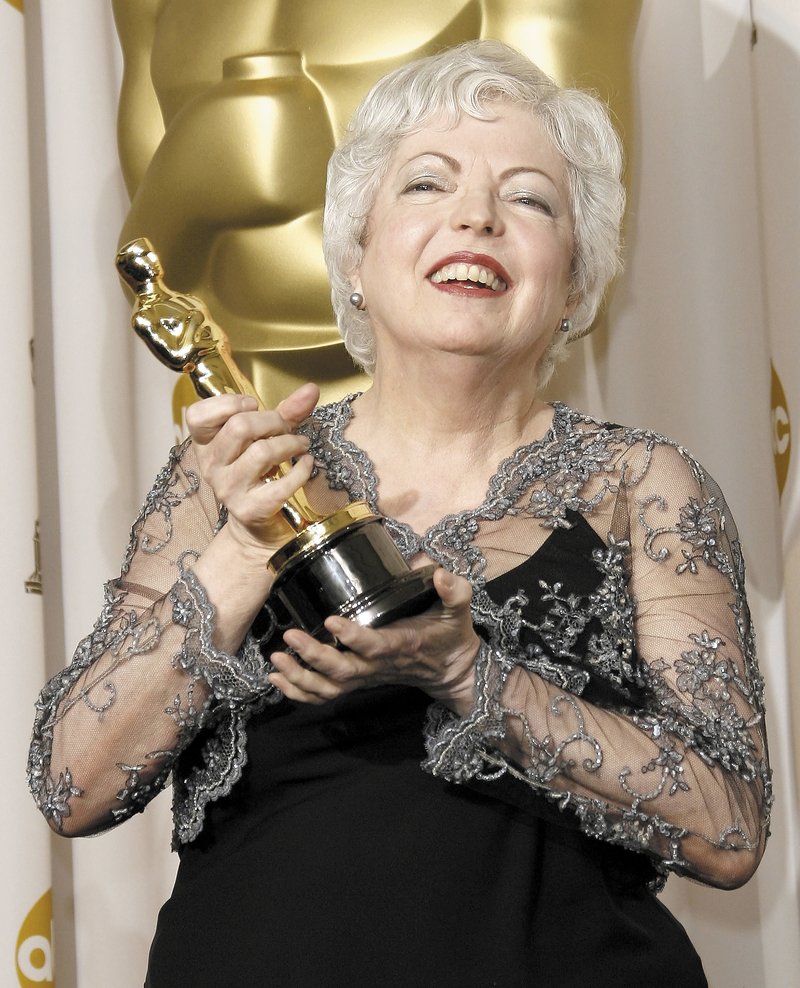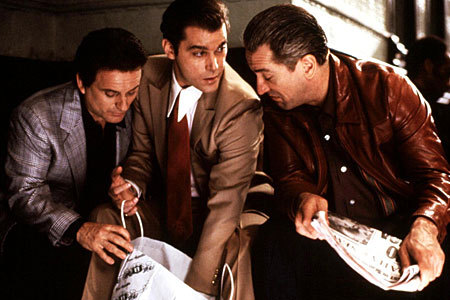Editing film for Martin Scorsese is the greatest job in the world, according to Thelma Schoonmaker.
Schoonmaker, who has been working with the acclaimed director for more than 40 years, has won three Academy Awards for best editing and was nominated for seven more.
On Tuesday, she will get yet another award — and the people of Maine will be there to applaud her.
At 6:30 p.m. in the Waterville Opera House, Schoonmaker, 72, will be presented the Mid-Life Achievement Award at the Maine International Film Festival. She said she is touched to have been chosen.
“I have the best job in the world, and any award I get is the icing on the cake,” she said. “I’m so lucky. I’m so terribly lucky, and I’m so grateful to Scorsese for the work he has given me.”
Schoonmaker, whose editing credits include “Raging Bull,” “The Color of Money” and “Gangs of New York,” spoke by phone recently from her hotel in Beverly Hills after returning from Europe.
Scorsese’s 1990 movie “Goodfellas,” winner of the Best Film of the Year from the National Society of Film Critics, will be shown on Tuesday at the Opera House. She also will present “Kundun,” Scorsese’s film about the 14th Dalai Lama, and “The Edge of the World,” a film directed by her late husband, British director Michael Powell.
Schoonmaker and Powell were married from 1984 until his death in 1990. Scorsese introduced the pair, and they were together three years before they wed. Since Powell’s death, Schoonmaker has been working to preserve his films, diaries, posters, scripts and papers to honor his legacy.
“That’s a great legacy he gave to me, and it keeps me very busy and continually thinking about him,” she said. “I’m reading his diaries now, and to be hearing his voice in my head is just wonderful.”
Schoonmaker was born in Algeria to American parents, and lived in Aruba before moving to the U.S. when she was a teenager. She dreamed of being a diplomat, so she studied political science and Russian at Cornell University, from which she graduated in 1961.
She saw an advertisement in the New York Times for an assistant film editor, got the job, and worked for an editor who she said butchered classic films. Later, she took the skills she learned there to New York University, where she enrolled in a six-week class in filmmaking.
It was there that she met Scorsese, who was having trouble with a 10-minute film he was making, as an editor had cut the negatives incorrectly, Schoonmaker said. The professor asked if anyone knew how to help.
“I said, ‘Yes, maybe I can help him,’ ” Schoonmaker recalled. “I went over. He had been up three days working on his film. We sort of re-cut the film together.”
After that, she and Scorsese parted, but they would work together again. “That’s how things began,” Schoonmaker said. “It was all accidental.”
Editing has certainly changed during the years Schoonmaker has worked in the movie industry. At first, she was very reluctant to make the change to digital editing, but after she received training, she jumped right in and was fine, she said.
“I find I experiment a lot more than I ever did with film,” she said. “It’s been a big change for the better, but it doesn’t change the art of editing.”
Schoonmaker’s most recent Academy Award nomination — her seventh — was for editing “Hugo,” a 3-D Scorsese film about a young boy who lives alone inside a Paris train station and meets up with pioneering filmmaker Georges Melies. The film incorporated actual footage from the silent movie era into the story.
“It was such a joy to work on and see young children respond to silent films,” she said. “It was just incredible, and we didn’t expect that.”
Schoonmaker, who usually works until 11 p.m. seven days a week, said this is the first time in more than 25 years that she has had more than two weeks off. She relishes having the time to work on Powell’s archives, spend time at his cottage in England, and come up to Waterville to the film festival.
“It’s been a blessed time for me,” she said.
Much of Schoonmaker’s life continues to revolve around her late husband, who, in a conversation toward the end of his life, supported her love of New England.
“I said to him, ‘I’ll retire to New England with a cat,’ and he said, ‘I would like that very much.’ “
Copy the Story Link
Send questions/comments to the editors.




Success. Please wait for the page to reload. If the page does not reload within 5 seconds, please refresh the page.
Enter your email and password to access comments.
Hi, to comment on stories you must . This profile is in addition to your subscription and website login.
Already have a commenting profile? .
Invalid username/password.
Please check your email to confirm and complete your registration.
Only subscribers are eligible to post comments. Please subscribe or login first for digital access. Here’s why.
Use the form below to reset your password. When you've submitted your account email, we will send an email with a reset code.